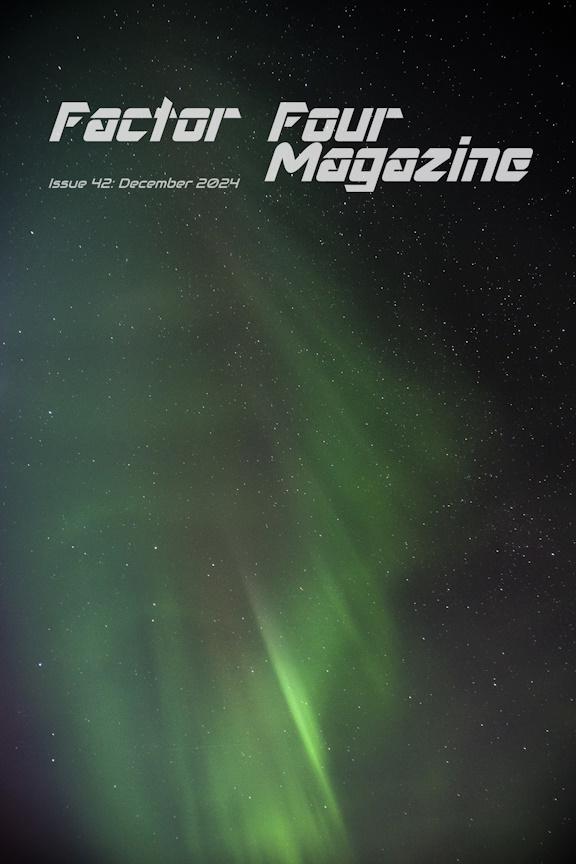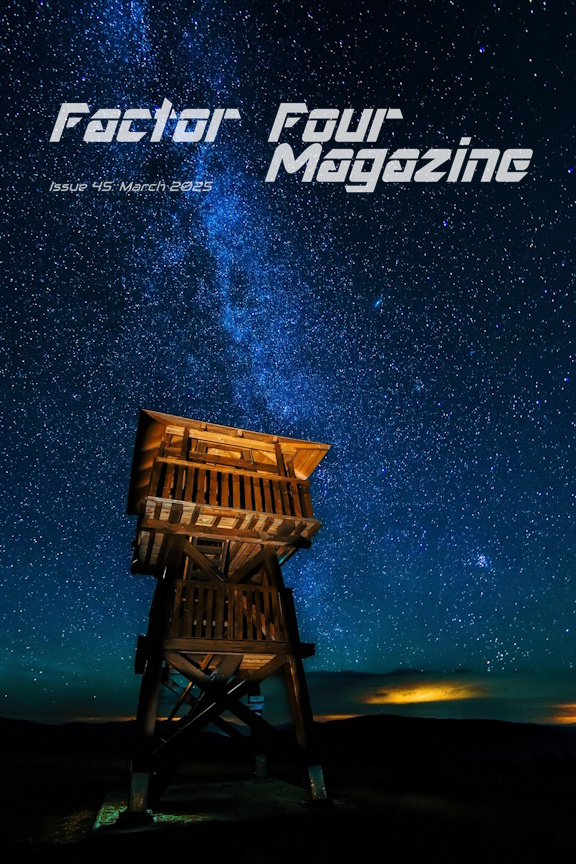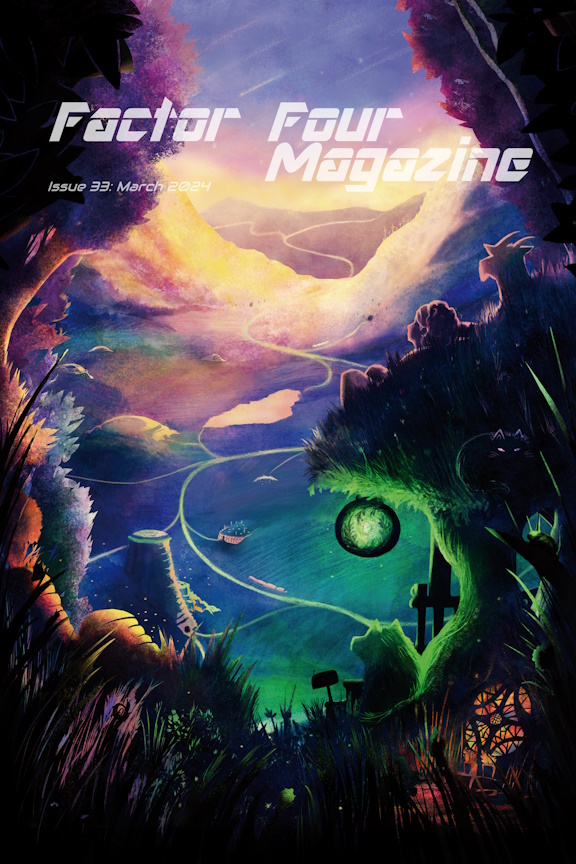What Is Written, What Is Burned by Sophia Zhao

“They say you are the one who can attend to my needs.”
A cloaked figure waits at my doorstep. Behind her, twilight drags its dark, feathered wing across the horizon. A fortnight ago, the sun might have lingered. But the seasons are turning; soon, there will be frost. For now, we endure only bitter winds, like the one that drives a shiver through the woman standing before me. I reprimand myself for dallying. I can barely see her face, but that is not so unusual in my line of work; really, I have welcomed strangers into my establishment on far less. Stepping aside, I allow her entry, and shut the door.
“Autumn has gone,” I remark, turning to face my visitor. And only just manage to stifle a gasp.
No longer hidden beneath a threadbare cloak, the woman is a sight to behold: hair dark as ebony wood; lips red as blood; skin white as snow. Truthfully, she is so beautiful, I find myself flinching away.
“You need not tell me your name,” I mumble to the floorboards.
“Then I shall not ask for yours.”
Cautiously, I lift my gaze. It is easier to look upon her now. My eyes must be adjusting. “This is not a simple undertaking.”
“So I imagine.”
“This will hurt.”
“Do what you must.”
“This may… cost more than you are willing to give.”
“Do you tell this to every woman?”
The question stops me short. Her lip curls; I suppose my silence is answer enough. With two languid steps, she closes the distance between us.
“Would you care for a story?” the woman asks.
“Does it have a happy ending?” The words leave before I can stop them, before I can remind myself that I already know the answer—
“It has yet to be written.”
—or perhaps not.
Her smile is soft, wicked, and full of sorrow. Slowly, I gesture to the single bed in the middle of the room. “Then tell me what you know of it.”
“There once was a girl who entered this world with blood on her hands. Yes—her mother died so that she could breathe the same air as you and I.” Her fingers dance in the space between us, and I feel her breath warm against my cheek. “The mother had always been of a delicate constitution, made even more fragile by a string of stillbirths. But when the royal physician warned of the dangers another pregnancy could pose, the father, the king, took his head.
“Of course, you do not tell a child such things. You tell her that she sprang from the heart of a shooting star. You tell her that she was a gift from the gods, whisked into her father’s loving arms by a great, white stork.
“But all such tales fade with time. When the girl was, at last, old enough to understand the truth of the matter, she vowed that she would not have to suffer as her mother did.
“‘In time, your heart will thaw,’ the matrons told the girl. ‘In time, your womb will grow wanting.’ But when the years passed, and she remained iron in her conviction, they began to hiss: ‘Do not speak of such things; do not let your father hear. You are a woman of noble breeding; you have but one duty in this life.’”
Heat makes a home in my cheeks. But the woman does not see: her eyes are distant. She is a world away.
“It was not long before the girl’s father remarried. He claimed she needed a mother. A tender, guiding hand. Really, I think, the king wished for an heir—one whom the lords would follow, even into the gleaming point of a spear.
“Even now, they whisper, in the streets, the stepmother’s name like a curse. But she was not a monster, not the bitter, jealous thing they say she was. Her only crime was a barren womb. And, by all measures, a love for the girl.”
Though her voice is steady, a light trembles in the woman’s eyes. Pain lances my heart. I should be used to this by now; few women come to my doorstep with joy written across their faces. And yet, each time cuts like the first.
“When the girl bled for the first time, her father was delighted. He quickly arranged a marriage between his daughter and the prince of a neighboring kingdom. A girl for an ally. There are worse deals brokered every day.
“But her stepmother knew of the girl’s wish; she knew of her pain. So she begged her husband, the king, the father, to let the girl be. To live as she chose to live.”
A tear dribbles down the curve of her cheek. “The wedding was a lavish affair. The lords picked at sweetmeats while the knights stripped her stepmother bare. The prince cried out for more wine as they shackled her into shoes of heated iron. The king gorged on roasted pig while she wept and begged for mercy. And the girl sat and watched, sat and watched, as her stepmother danced herself to death.”
In the silence that follows, I search for her eyes and the twin pools of unshed tears that must surely mirror mine.
Instead, I find only fire, blazing white-hot.
“If she shall live,” the woman whispers, “it will not be under the rule of men. If she shall live, it will be in a manner fitting of her mothers’ sacrifices.”
Her eyes never leave mine. Outside, night reigns on the back of a fanged moon, and the wind begins its slow lament. The seasons have turned; winter is upon us. Soon, there will be frost.
Or perhaps not. Because the thing with fire is that it makes an enemy of the present. Because the thing with fire is that it burns and spreads, burns and spreads.
My vision clears. Slowly, I rise from my wooden perch.
“Then let us write the ending.”



